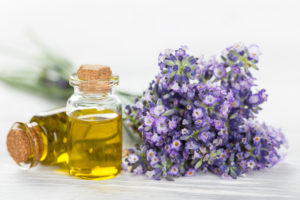
Herbs in Trichology
For centuries, people have been using herbs as they are safe, effective and gentle, and have been time-tested and proven to strengthen hair and promote hair growth. Herbs are known to have minimal to no side effects unlike other types of medication or chemicals available in the market. The list of herbs traditionally used for hair growth is extensive. We have outlined some of the best choices, curated by a Trichologist, to help you understand how they work and how you can benefit from them. For best results it is vital to consult your Trichologist to ascertain the root cause of your hair problem and customise treatments appropriate to your scalp condition.
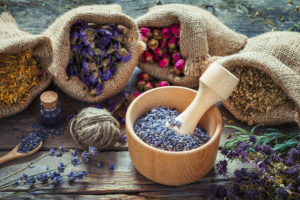
Saw palmetto is a plant with small berries that has been used by native Americans as medicine and food for many decades. Studies have shown that an extract of saw palmetto berries may block 5-alpha reductase, an enzyme that converts testosterone to DHT. DHT is responsible for making hair follicles weak and causing hair loss. With regular use of saw palmetto, hair loss can be significantly reduced and there can be a lot of improvement in hair growth.
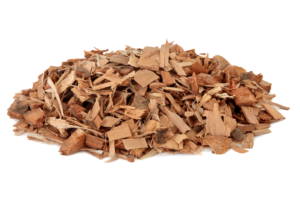
The leaves of an aloe vera plant hold a translucent gel-like substance which makes it a miracle plant for skin and hair. This gel contains protein, amino acids and vitamins such as A, B, C and E which provide all the nutrition needed to boost hair growth. It also contains proteolytic enzymes which repair dead skin cells, thus helping to improve scalp health efficiently. As the gel is 96% water, it is also an excellent source of hydration for dry scalp.
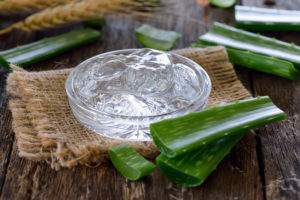
Stinging nettle or Urtica dioica has been recognised and used for its holistic properties for many years. It is rich in antioxidants and contains magnesium, silica, vitamin C, vitamin B and fatty acids. The entire plant including the stem, roots and leaves can be used to prevent premature ageing and greying of hair. It also acts as an anti- inflammatory herb when used regularly over a period of 6-9 months.
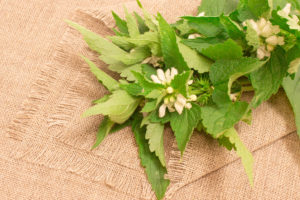
When applied over the scalp, rosemary essential oil helps stimulate hair growth as it promotes micro circulation. It has been long considered to be very effective in preventing baldness and slowing down the greying process. With its anti-inflammatory properties, it can also help to reduce redness and irritation and can be used to treat dandruff and dry scalp as well. According to one of the comparative studies done between rosemary and minoxidil, results showed that rosemary essential oil was just as effective as minoxidil. In fact rosemary turned out to be more successful as there were no side effects such as itchy scalp or redness.
Source – https://www.medicalnewstoday.com/articles/319444.php
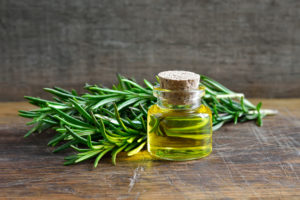
Peppermint is a plant hybrid of spearmint and watermint, and it is considered to be extremely beneficial for the skin, hair and gut. Due to its cooling effect, it is also commonly used to relieve muscle ache and nerve pain. Peppermint is perfectly soothing for an irritated and inflamed scalp and it can regulate sebum secretion in the scalp glands as well. It also helps with pH balance and keeps the follicles healthy. Due to its anti-fungal and anti-bacterial properties, this herb is used in a lot of shampoos. One Korean research study done in 2014 showed that peppermint may even increase the hair growth phase (anagen) and improve hair quality.
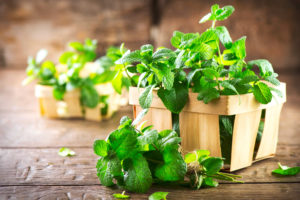
Burdock root is a plant native to Europe and Asia. It is rich in phytosterols, calcium, chlorogenic acid, flavonoids, iron, inulin, lactone, mucilage, polyacetylenes, potassium, resin, tannin, taraxosterol and essential fatty acids which can deeply nourish the scalp and promote healthy hair growth. Drinking burdock tea can also help cleanse the body and the bloodstream of harmful toxins.
Burdock root is also effective in treating dandruff and dry hair conditions as it helps restore the function of hair follicles and sebaceous glands, further protecting against scalp dryness. However, It is important to note that burdock root is not recommended for everyone. Diabetics and pregnant women need to consult a doctor before using this herb.
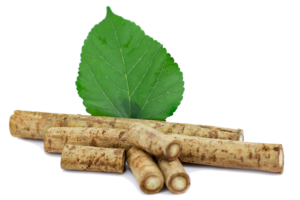
An important ester in clary sage oil called linalyl acetate is effective for the relaxation of nerves. It reduces skin inflammation and regulates the production of oil from sebaceous glands on the scalp. Sage is a combination herb and it is used along with various other essential oils. It works even better when combined with rosemary oil and can be helpful in increasing cellular metabolism of the hair follicles. With regular usage in tonic form, it may control alopecia areata. When combined with jojoba oil, it can also help to treat dry and scaly disorders of the scalp.
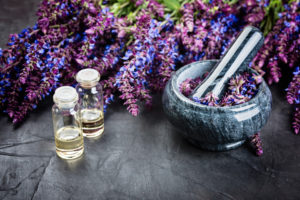
The leaves of ginkgo biloba are very commonly used in Europe and Asia for medicinal purposes. This herb is known to improve blood circulation towards the scalp. It reduces inflammation and redness present on the scalp and promotes scalp health. The extract of ginkgo biloba creates an optimal environment for hair growth, while making the hair healthy and shiny.
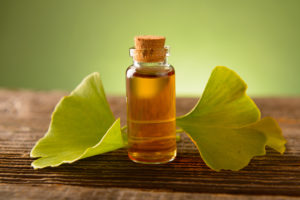
One of the most calming and relaxing herbs, essential oil of the lavender plant has been used for decades to treat hair loss. It is known that psychological factors such as emotional stress and anxiety can manifest in the body physically. This can trigger various hair problems such as thinning of hair, alopecia areata, and telogen effluvium (excessive shedding of hair). Hence, by addressing the root cause, lavender oil acts as therapeutic medicine and treats hair loss. It also helps promote blood circulation and delivers nutrients to the hair follicles. It is ideal for promoting thick, healthy hair growth.
